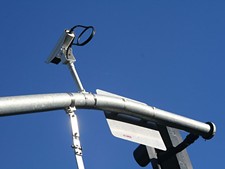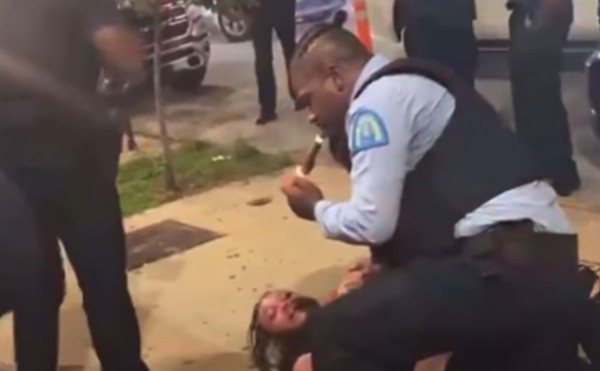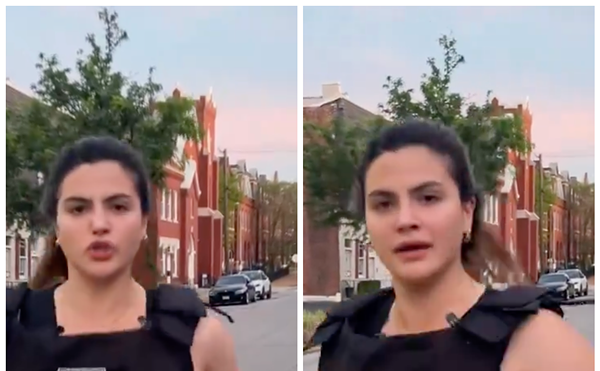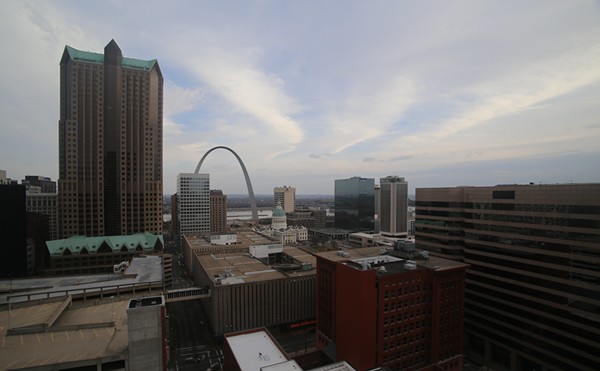With red-light cameras under so much fire, maybe now's a good time to try and fight those tickets.
Daily RFT is not giving legal advice, but recent events, such as the Eastern District of the Missouri Court of Appeals ruling against the use of red-light cameras in Arnold, is further indication that these cameras are not on firm legal footing. So when a blog about how a Virginia man wrote a letter to dispute his camera ticket that resulted in his fine being dismissed crossed our desk, we were curious.
The letter, which was posted on CopBlock.org, said this:
To Whom it May Concern,I received a letter claiming I committed a violation of a speeding law in the District of Columbia on 04/21/2012. As per the instructions, I am writing to plead 'not guilty' to this charge. Although this option is said to result in this matter going to court; it is my suggestion that the charges simply be dropped. This suggestion comes out of respect for tax payers, and my request that their hard earned money not be wasted in such proceedings. As there is no evidence of my involvement with this alleged 'crime', as well as the fact that I am not granted my 6th amendment right to face my 'accuser' (a camera); I see no way the government could prove my guilt beyond a reasonable doubt. I also see find no legal requirement for me to implicate someone else in this process, as it is the government's responsibility to prove a person's guilt. It is also my 5th amendment right to remain silent on the matter.
If it is the government's decision to move forward in this matter, I would request copies of any evidence the prosecution may have of my involvement in the "offense"; as well as, all maintenance records for the camera(s) involved.
Sincerely,
Nathan Cox
United States Army Veteran
To get an expert's opinion on if a stunt like this wouldn't end up in cops and judges barreling over in laughter before sending in a S.W.A.T. team to kick down our doors and throw us in prison, we talked to Mike Carter, a St. Louis defense attorney who dislikes photo-enforced tickets so much, he won a judgeship based on an anti-red-light camera platform.
"These cameras smack of indirect taxation, dishonest discussions about public safety versus revenue, and it involves a private company very much engaged in and wishful that they hit the right intersection with the right amount of ticket issuing so they can get their 33 or 50 percent of the revenue," Carter tells Daily RFT. "I just don't like anything about it."
See also: St. Louis City Counselor: Don't Like Red Light Cameras? Don't Drive.
Carter says that given the current confusion in the courts about camera tickets, a letter like this should work. But just because it should, doesn't mean it will.
"Depending on the sophistication of the personnel of the city, they should abide by what [the blog says]. But some of them are on such a revenue-bent that you can't see the reality of the law," Carter says.
The "proof" part is murky, especially since if the city prosecutor wants to try to prove it, they can probably do so.
"The burden on a criminal case is always on the state to prove beyond a reasonable doubt," Carter says. "But typically, they're ready to pull out the camera, show you the video, get an officer out to show you what he saw in the video, and they'll make a determination from a legal standpoint about what happened on the video."
But what if it wasn't you driving and you'd rather not snitch on your significant other who was going a few miles over the speed limit because he or she couldn't wait to see you?
Click on the next page to see what Carter says about snitching on your loved ones...
"You can swear and affirm it wasn't you -- that's simple. You don't have to rat somebody else out," Carter says.
Ratting out friends and family is something prosecutors offer to people who want to stay out of prison, but that game doesn't fly with photo-enforced traffic tickets, Carter explains.
"Most all of the traffic violation camera systems are invalid or void on their face according to our appellate court, so it would be pretty hard for them to offer immunity for something you're already immune to, so it's mostly just a policy at this point: 'you tell us it wasn't you, we'll let you go,'" he says.
"I think they're hoping 60 percent of the population will just pay so they don't get in any more trouble because they don't know."
See also: Missouri Court Rules Ellisville Red Light Cameras Violate State Law
For people who get one of these tickets, Carter recommends writing a letter -- but only if you keep on top of it.
"If your hope specifically is that someone there will understand what the legal landscape is and they'll dismiss it, then yes, send a letter," Carter says. "But if your hope is to send a letter and never think of the ticket again, then absolutely not."
Instead, Carter says to write a letter, cite the recent ruling of the district courts -- it doesn't have to be expertly-written, just something that explains photo-enforced camera tickets are still questionable, and follow-up until an answer is given.
"Send the letter, send it by certified mail and by snail mail, send it by email if you can, then call back in about 10 days to see if they've dismissed it," Carter says.
"But by no means in any way, shape or form, do you ignore the demands of that court for you to show up there."
There might be some confusion over the legality of photo-enforced traffic tickets, but not over arrest warrants for people who got a ticket but didn't show up to court.
"You don't want to get arrested while dropping your kids off at the skating rink," Carter says.
Follow Ray Downs on Twitter:
E-mail him at [email protected].






